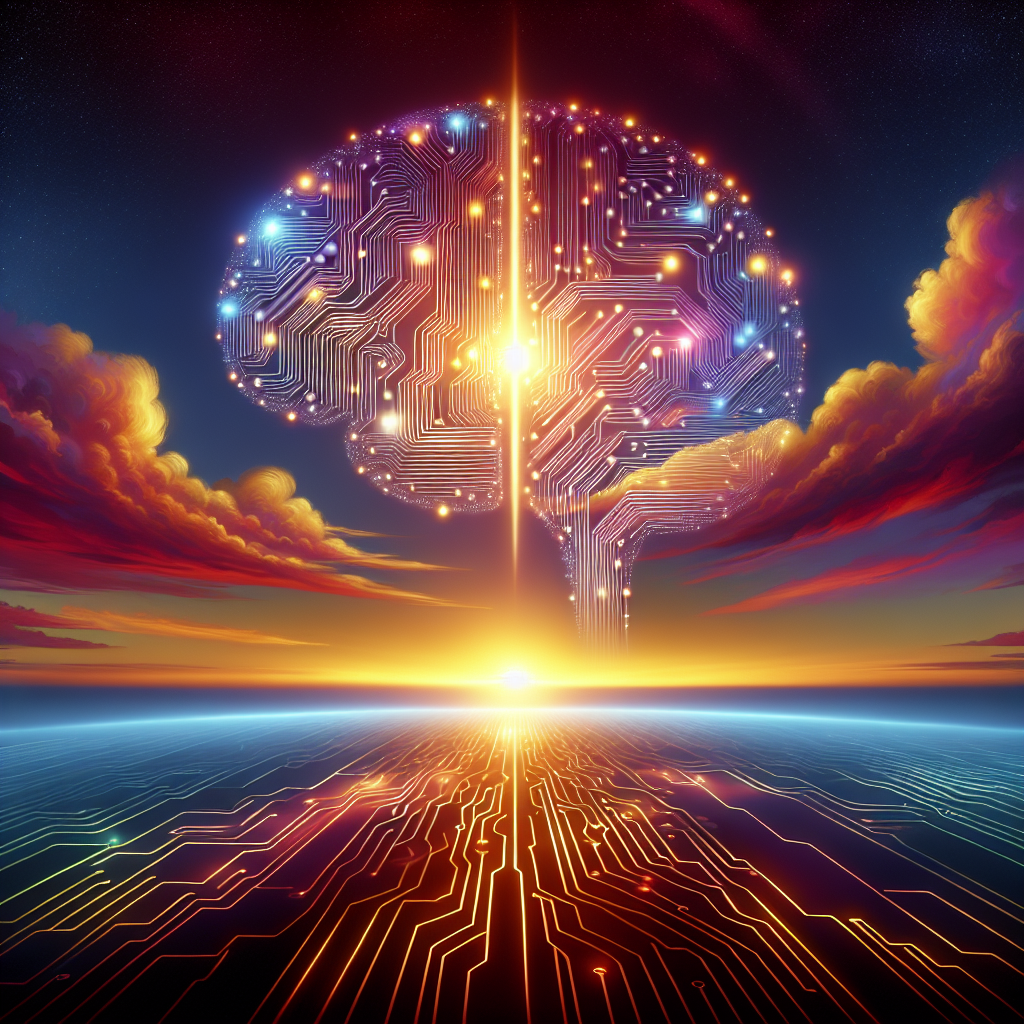AGI: The New Era of Artificial Intelligence on the Horizon
Artificial General Intelligence (AGI) is the next frontier in the field of artificial intelligence. Unlike narrow AI systems that are designed for specific tasks, AGI aims to replicate human-like intelligence and cognitive abilities across a wide range of tasks and domains. This new era of AI has the potential to revolutionize industries, transform society, and fundamentally change the way we interact with technology.
In this article, we will explore what AGI is, how it differs from existing AI systems, the challenges and opportunities it presents, and what the future may hold for this groundbreaking technology.
What is AGI?
AGI refers to artificial intelligence systems that possess general intelligence, similar to that of human beings. These systems are able to learn, reason, plan, and adapt to new situations in a way that goes beyond the capabilities of current AI technologies.
While narrow AI systems excel at specific tasks, such as image recognition or natural language processing, they lack the ability to generalize their knowledge and skills to new tasks or domains. AGI, on the other hand, aims to bridge this gap by developing AI systems that can perform a wide range of tasks with human-like proficiency.
How is AGI different from existing AI systems?
The key difference between AGI and existing AI systems lies in their level of generality and adaptability. While narrow AI systems are designed for specific tasks and are often trained on large datasets, AGI systems are designed to be more flexible and capable of learning new tasks with minimal supervision.
AGI systems are also able to reason and make decisions in complex and uncertain environments, a capability that is currently lacking in most AI systems. This level of cognitive flexibility is what sets AGI apart from existing AI technologies and opens up a whole new realm of possibilities for the field of artificial intelligence.
What are the challenges and opportunities of AGI?
AGI presents a number of challenges and opportunities for the field of artificial intelligence. On the one hand, the development of AGI systems requires significant advancements in areas such as machine learning, natural language processing, and cognitive science. Researchers are still working on understanding how to replicate human-like intelligence in machines and how to ensure that AGI systems are safe, ethical, and aligned with human values.
On the other hand, the potential benefits of AGI are immense. AGI has the potential to revolutionize industries such as healthcare, finance, education, and transportation by automating complex tasks, improving decision-making, and enhancing productivity. AGI systems could also help us tackle some of the most pressing challenges facing humanity, such as climate change, poverty, and disease.
What does the future hold for AGI?
The future of AGI is still uncertain, but researchers are making significant strides in advancing the field of artificial intelligence. Companies and organizations around the world are investing in AGI research and development, and there is growing interest in exploring the potential of AGI to transform industries and society.
As AGI technologies continue to evolve, it is important to consider the ethical implications of these advancements and to ensure that AGI systems are developed and deployed in a responsible and transparent manner. This will require collaboration between researchers, policymakers, and industry stakeholders to address issues such as bias, privacy, and accountability.
FAQs
Q: Will AGI replace human workers?
A: While AGI has the potential to automate many tasks currently performed by humans, it is unlikely to completely replace human workers. Instead, AGI is more likely to augment human capabilities and enable us to focus on more creative and strategic tasks.
Q: Will AGI be able to replicate human emotions?
A: Replicating human emotions in machines is a complex and controversial issue. While AGI systems may be able to recognize and respond to emotions, it is unlikely that they will be able to truly experience emotions in the way that humans do.
Q: How can we ensure that AGI is developed responsibly?
A: Ensuring the responsible development of AGI requires collaboration between researchers, policymakers, and industry stakeholders. This includes addressing issues such as bias, privacy, and accountability, as well as ensuring that AGI systems are aligned with human values and ethical principles.
In conclusion, AGI represents a new era of artificial intelligence that has the potential to transform industries, society, and the way we interact with technology. While there are still many challenges to overcome, the opportunities presented by AGI are immense. By working together to address the ethical implications and ensure responsible development of AGI, we can harness the full potential of this groundbreaking technology and shape a better future for humanity.

